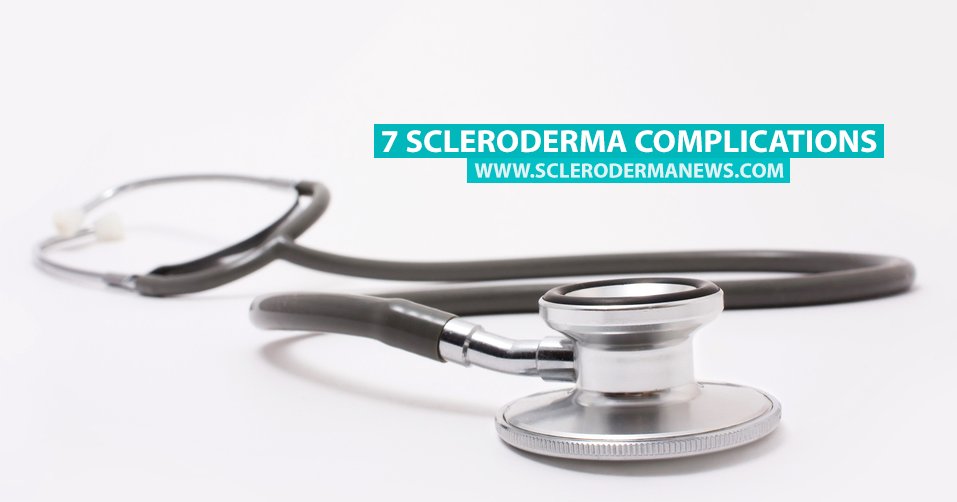7 Scleroderma Complications
Written by |

Because scleroderma can affect any organ of the body, patients symptoms and complications vary greatly, according to the Mayo Clinic. Here are seven common complications:
1. Fingertips
As a result of Raynaud’s disease (experiences by most with scleroderma) blood flow to the hands becomes so restricted that the tissues at the fingertips become permanently damaged, creating digital ulcers or pitting. In extreme cases, the fingertips may become gangrenous and amputation may be needed.
MORE: Scleroderma and Raynaud’s: The Fun Snatchers
2. Lungs
Scarring of the connective tissue in the lungs is a common scleroderma complication that can lead to lung disease such as pulmonary arterial hypertension (PAH). PAH results in severe breathing difficulties and could lead to right heart failure.
3. Kidneys
If scleroderma attacks the kidneys, an increase of protein in your urine and higher blood pressure can occur. Both effects can lead to kidney failure.
MORE: Professional Gardener Explains How Scleroderma and Raynaud’s Affect Her Work
4. Heart
Scleroderma can cause scarring of the heart which can result in irregular heartbeat, congestive heart failure, and pericarditis.
5. Teeth
Tightening of the skin around the jaw can cause the mouth area to shrink, which can make dental hygiene a difficult task. Dental problems can also develop because scleroderma patients may have trouble producing saliva.
6. Digestive System
Gastrointestinal complications such as diarrhea and constipation are common for scleroderma patients. Some may also experience acid reflux and have trouble swallowing food.
7. Sexual Function
Male scleroderma patients often report erectile dysfunction. Female patients may deal with dry vagina.
MORE: Scleroderma May Change Your Life, But Here’s How to Regain Control
Scleroderma News is strictly a news and information website about the disease. It does not provide medical advice, diagnosis or treatment. This content is not intended to be a substitute for professional medical advice, diagnosis, or treatment. Always seek the advice of your physician or another qualified health provider with any questions you may have regarding a medical condition. Never disregard professional medical advice or delay in seeking it because of something you have read on this website
.





